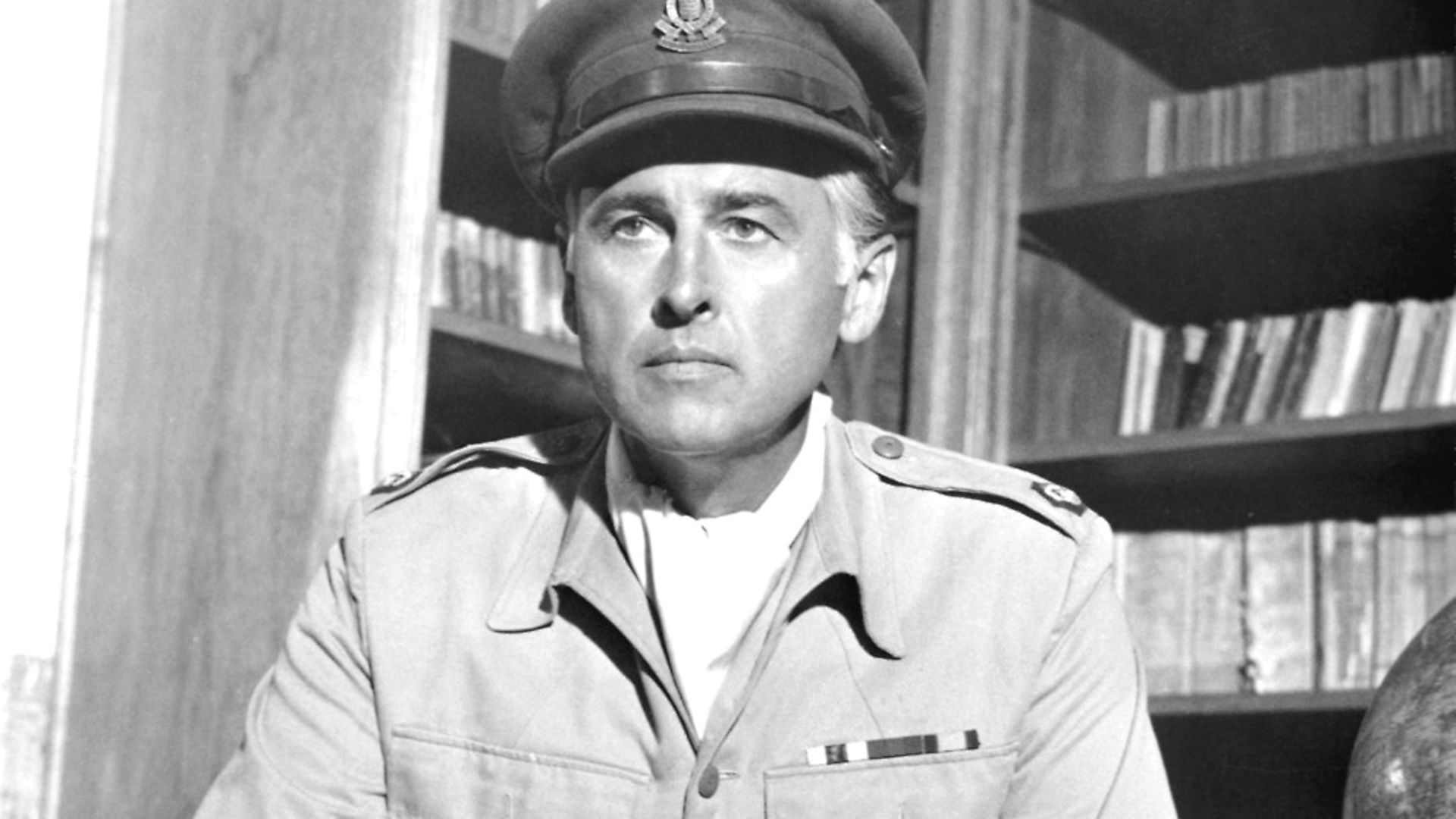
TIM WALKER looks back on the life of Stewart Granger and his real thoughts about acting.
In Matthew Kneale’s brilliant novel English Passengers, your opinion of the leading characters is continually evolving as you see them from the perspectives of different people. It’s a bit like that after you’ve spent a few years interviewing actors. Certainly, if you’d only ever talked to Stewart Granger about Stewart Granger, you could have been forgiven for thinking he was a consummate old pro and an enormously likeable human being.
He was not, however, an actor’s actor, and, whenever I mentioned his name to other members of his profession, there was invariably a long sigh. It was like that with Roger Moore. He’d appeared with him in the film The Wild Geese, in which he’d played a mercenary employed by Granger’s character, who was allegedly inspired by the tycoon Tiny Rowland. ‘I was sitting in a car with Richard Burton in driving rain and he’d just done a scene with Stewart and he turned to me and said wearily ‘Roger, why does he always have to be such an unutterable s**t?’ I mean at the ages we all are now – why can’t he just grow up? I shook my head and said ‘That’s just Stewart, he can’t help it’.’
Moore was more charitable about him than Christopher Lee, who considered him to be a world class bore, and, as for Eleanor Parker, his co-star in Scaramouche, he was ‘a dreadful person, rude and just awful. Everyone disliked him. Just being in his presence was bad.’
Still, Granger was charm personified when I met him in 1990. A mane of brilliantined grey hair, a deep tan, gleaming white teeth, he looked, even at 77, every inch the Hollywood star.
He’d actually been born in west London, and, after Epsom College, he’d gone on to the Webber Douglas Academy of Dramatic Art as he couldn’t think of anything better to do.
It was pretty obvious from the start that casting directors were going to file his name under B for beefcake and it would be swashbuckling epics rather than Shakespeare for him.
Granger was residing in California when we’d met, but Glynis Johns and Rex Harrison had persuaded him to return to Britain to make a stage comeback with them in a production of Somerset Maugham’s The Circle.
Their ill health and death respectively meant he had become the only member of the original cast still standing for the transition from Broadway to the West End.
I wondered if it was to honour Harrison’s memory that he wanted to go ahead with the play’s run. ‘No, it’s money,’ he said, with a broad smile. ‘It’s always money. I don’t ever work for the love of it.’
If Granger was in a very bad mood making most of his films, it was almost certainly because he didn’t really regard acting as a fit and proper job for a grown man. ‘If I was a more sensible human being, I’d have done something worthwhile with my life and become a doctor. My problem is I like a certain kind of lifestyle that is quite expensive to maintain and that requires money. People ask me sometimes how I could have appeared in such terrible films. The answer is always the same – money, money, money.’
In his later years, the critics had started to discern a new depth in some of Granger’s performances, but he saw that as ironic rather than satisfying. ‘It’s rare for an actor to have looks and talent at the same time. Usually the talent comes after the looks have gone – when it’s not an awful lot of use as no one’s watching any more.’
I’d no idea of quite how difficult Granger could be to work with when we met, but, looking back at what he said, it all fits into place. Acting just seemed to make him unhappy and every story he told me was to make light not of himself, but what he did for a living. The funniest of these was his account of how Elvis Presley had once come up to him in a restaurant. ‘He bounded up and said he’d seen me in King Solomon’s Mines more than 60 times. I told him I was flattered. Elvis then shook his head sadly and added: ‘I didn’t have any choice in the matter, Mr Granger. You see, at the time I was working as an usher in a cinema where the godawful film was playing.”










